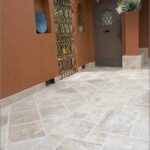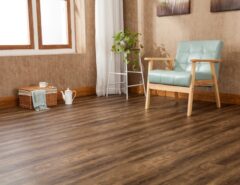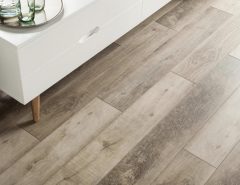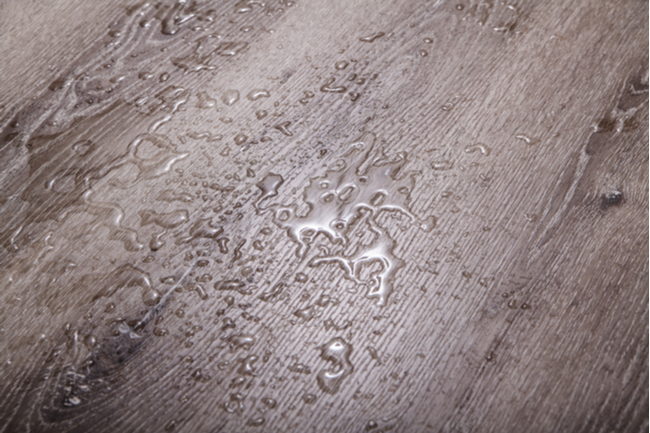
There are many different types, colors, and styles of red and white oak flooring from which to choose. Here’s how you can consider the options.
***
Oak trees are one of those iconic species. Oak trees have inspired magical childhood stories about acorns and squirrels, the carving of romantic hearts with the initials of lovers meeting in secret, and even catchy pop songs warbled by those ’70s disco divas Tony Orlando and Dawn. You may have passed an hour or two sitting under an oak with a good book, wiling away the day because they’re that kind of tree: quiet, interesting, and strong enough to have your back.
These are same wonderful qualities that oak can bring to your floor.
But here’s the catch: there are hundreds of oak species. It’s a species with a reach beyond any other. Oak grows on almost every continent (no, oak hasn’t made it to Antarctica… yet), and so there are many different types, colors, and styles of hardwood oak flooring from which to choose. Here’s how you can begin to whittle down the options.
Red Oak Stats
Latin name: Quercus rubra
Janka Hardness rating: 1290
Common color spectrum: Light white to pinkish tone
Stability: Durable but porous
Red oak is commonly used as the benchmark for other types of hardwood when it comes to hardness rating and stability.

White Oak Stats
Latin name: Quercus alba
Janka Hardness rating: 1360
Common color spectrum: Light brown, but darker and more yellow than red oak
Stability: Very durable and resistant to water, since it was the go-to wood species for shipbuilding.

What’s the Difference?
There’s a very big difference between white oak and red oak, a difference that goes far beyond color. But let’s begin with just that: color.
Although it may seem a practical thing to assume that white oak is a lighter wood, it actually isn’t. White oak can actually darken to a medium brown, and, with some white oak subspecies, even a light black. Red oak, on the other hand, is a light wood that, even when aged and sealed, may look closer to a pine color than to other species of oak.

Color and leaf shape doesn’t provide the biggest discrepancy between the two species, however. The real contrast between red and white oak comes with the two woods’ level of porousness. Red oak is a very porous material with which to work.
Its growth rings are pocked with microscopic open tunnels that can soak up moisture like a sponge. The tunnels in white oak, on the other hand, are filled with solid plugs called tyloses. This makes white oak not only durable, but extremely water-tight. Think of the great European sailing ships of the seventeenth century, all make with white English and Spanish oak: they were able to run rings around the globe without fail (except when fighting each other, of course).
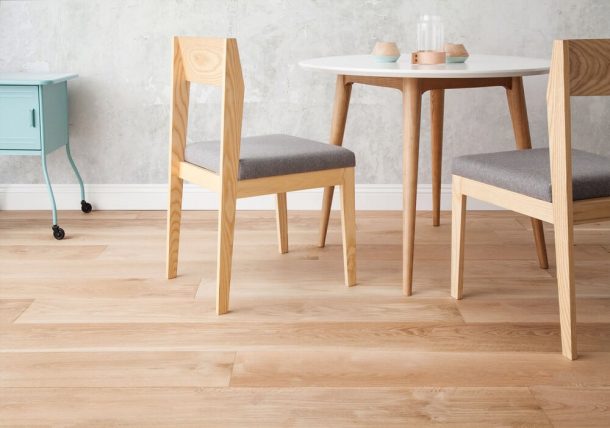
Making the Hard Choice
Both red and white oak are a durable species of wood, but given their difference in porousness, it’s clear that there are better practical applications for each.
Red oak is popular for indoor décor and flooring. It’s a beautiful and long-lasting choice for any interior design project. Red oak is a common material used for stair treads, saddles, and banisters because it is an easy choice for carpentry and carving. White oak isn’t as easy to work with for detailed construction because it is harder and less forgiving. Nonetheless, when it comes to outdoor construction, white oak is always going to be a safer bet. For external door frames and jambs, white oak is a fantastic option.
When it comes to indoor hardwood flooring, however, either white or red oak is a wonderful choice. Both species come in a number of different widths and styles and are equally durable when treated. So go ahead and make your choice based on color – it’s really that simple. The only thing you might want to take into consideration is color matching. If you’re investing in stained banisters, for example, you may want to choose a red oak for your floors so that everything lines up perfectly. If you have painted or metal accessories in your home, either red or white oak will be lovely.
Oak: Bring an Icon Home With You
An oak floor: when it comes to interior design and home resale value, the very words carry weight. We all know that installing an oak floor is always going to be a worthwhile investment.
But what really matters is how oak feels under your feet. Oak is smooth and comfortable to walk upon. It’s practical and beautiful. With its iconic history in books, on ship decks, and as the backdrop to homes around the world, oak just works.
So, which will it be? Red or white?

